Awareness Survey of 18-Year-OldsResults of 19th and 20th installments announced
The 19th installment of the Awareness Survey of 18-Year-Olds, launched by The Nippon Foundation in October 2018, was carried out in mid-September on the theme of “Media.” The survey showed that the information deemed most important for daily life was weather and disaster-related information, followed closely by entertainment and music, and then government, economic, and society. Television was the most popular source of information, followed by social media, news websites, video distribution and sharing sites, and friends and family. More than 80% of respondents have felt that information available on the internet is false, and more than 65% have confirmed the accuracy of information they saw on social media.
The 20th installment was an “Awareness Survey of Society and Country,” and for this installment the survey covered 17- to 19-year-olds in nine countries: China, Germany, India, Indonesia, Japan, South Korea, the United Kingdom, the United States, and Vietnam, with the results announced on November 30 at The Nippon Foundation Social Innovation Forum 2019. The survey showed that in a number of areas, young people in Japan ranked last compared with their peers in other countries in terms of considering themselves to be adults, having dreams for the future, and believing that they can change society or their country.
Notes:
- From the 13th survey, the number of respondents, comprising men and women aged 17 to 19, has been increased to 1,000 from 800.
- In the information below, differences between total amounts and simple sums are due to rounding.
Survey 19. Media (Results announced on October 29, 2019)
Finding: More than 60% of respondents felt they need weather and disaster-related information, as well as information about entertainment and music, in their daily lives, followed by information regarding government, the economy, and society. (multiple answers allowed; n=1,000)
“What kinds of information do you need in your daily life?”
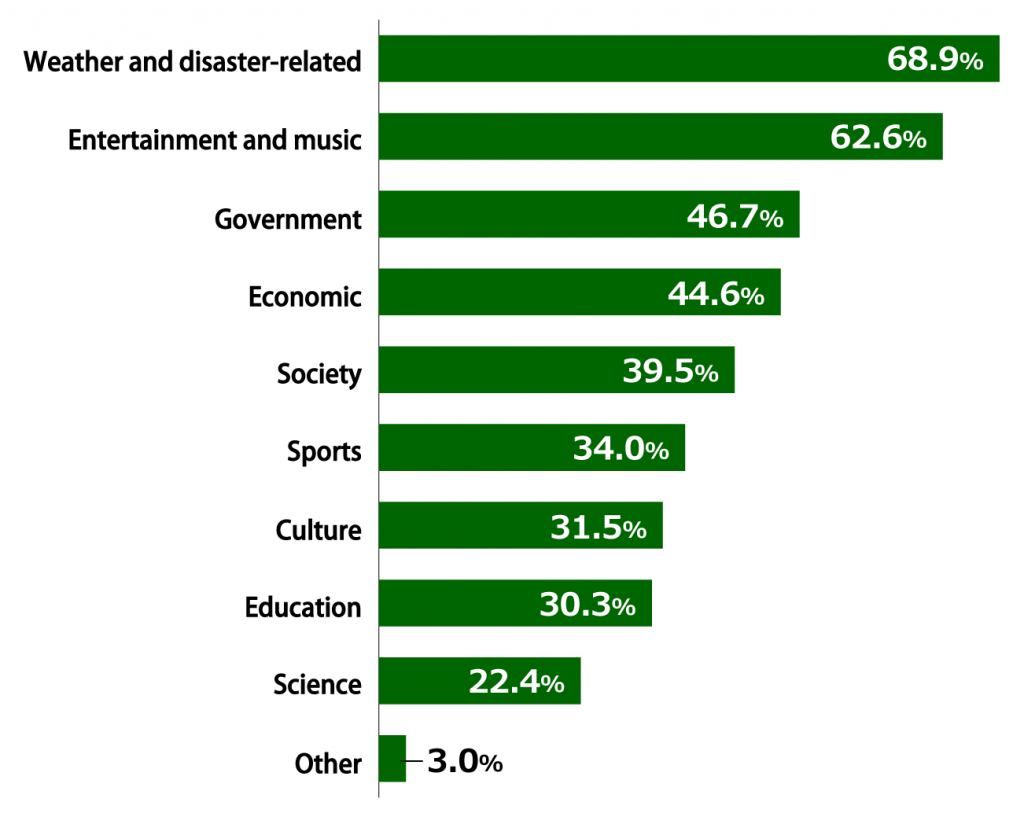
Finding: At more than 80%, television was overwhelmingly identified as a source of information, followed by social media and news websites. (multiple answers allowed; n=1,000)
“Where do you seek the information that you need in your daily life?”
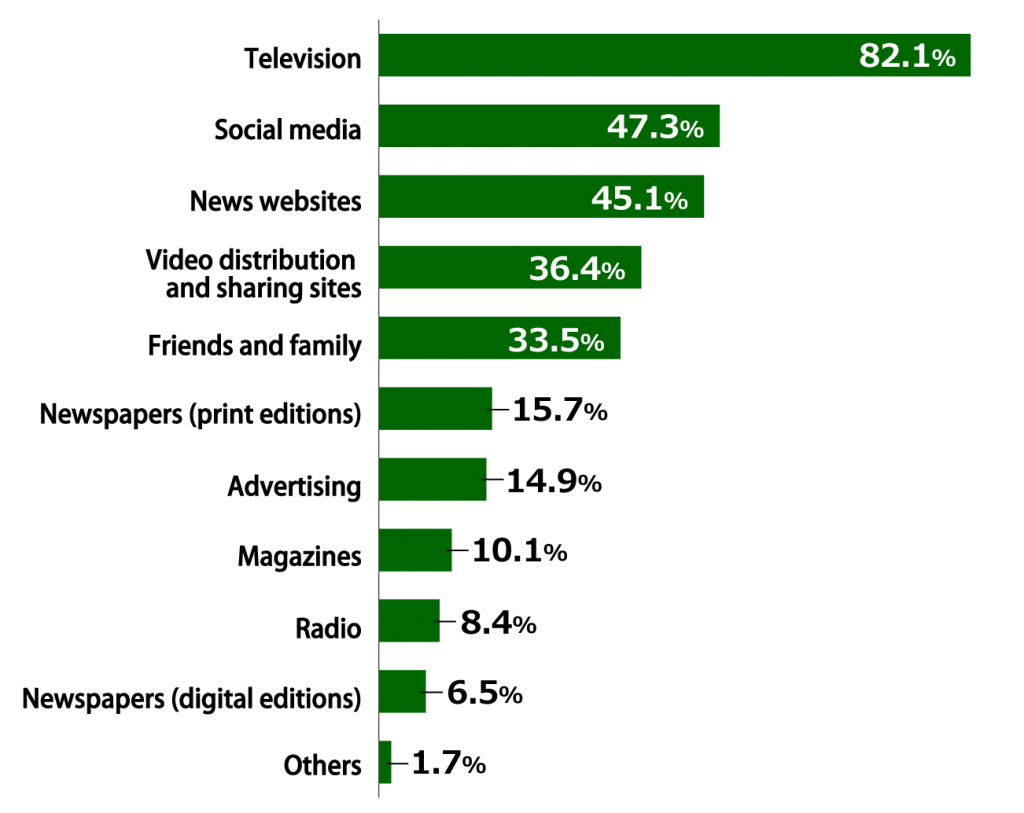
Finding: Line and Twitter are the most popular social media platforms. (multiple answers allowed; n=1,000)
“Which social media do you use for news and other information?”
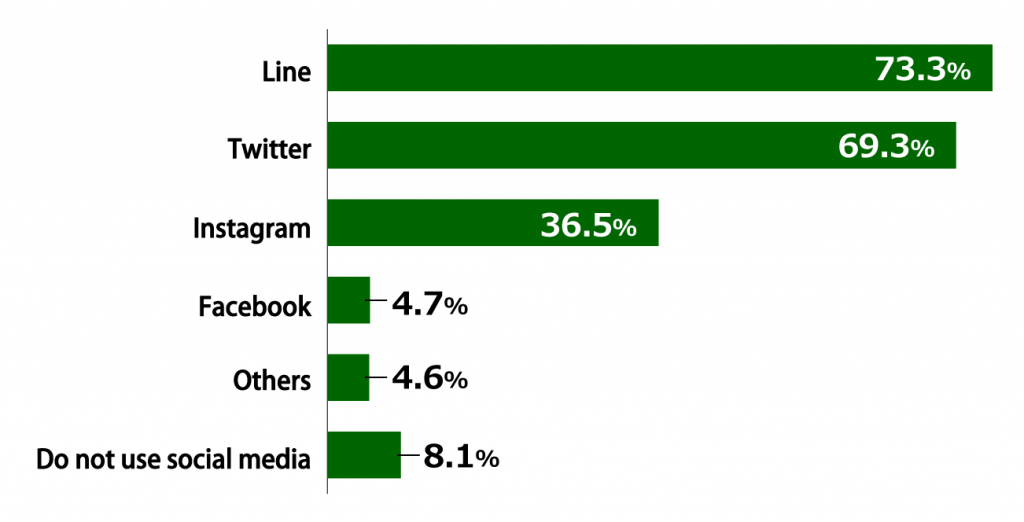
Other Findings (n=1,000)
The survey also found that 65.2% of respondents have confirmed the accuracy of information they have found on social media, 84.1% have felt that information available on the internet is false, 26.3% have passed on information without confirming its accuracy, and 56.6% believe that legal measures are needed to combat “fake news.”
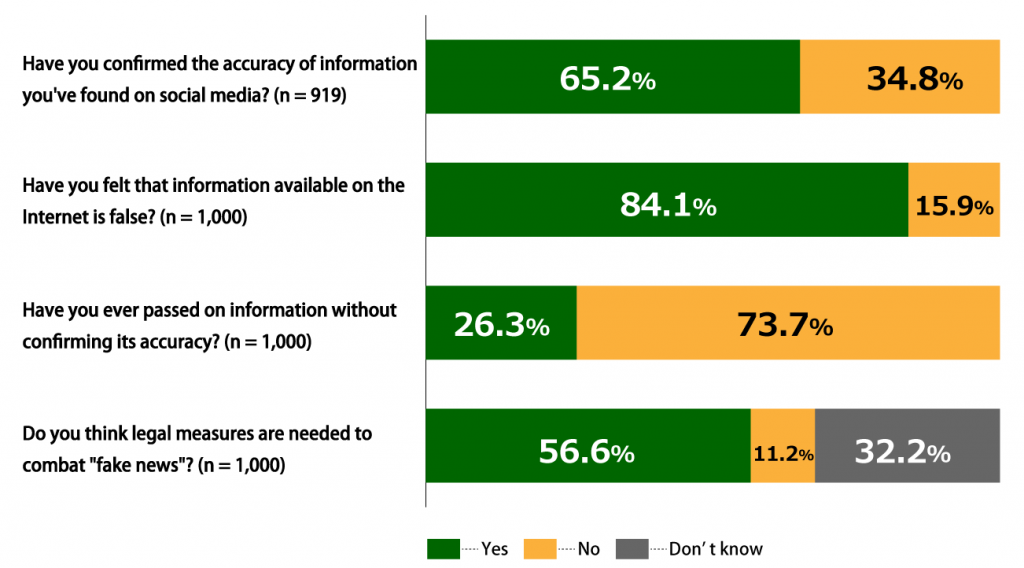
Survey 20. Nine-country survey on “Society and Country (Results announced on November 30, 2019)
Finding: Japanese respondents were less likely than respondents in other countries to view themselves as responsible adults engaged in society. (n=1,000 per country – China, Germany, India, Indonesia, Japan, South Korea, the United Kingdom, the United States, and Vietnam)
Responses to questions related to how respondents in nine countries viewed themselves (percentage replying “Yes”).
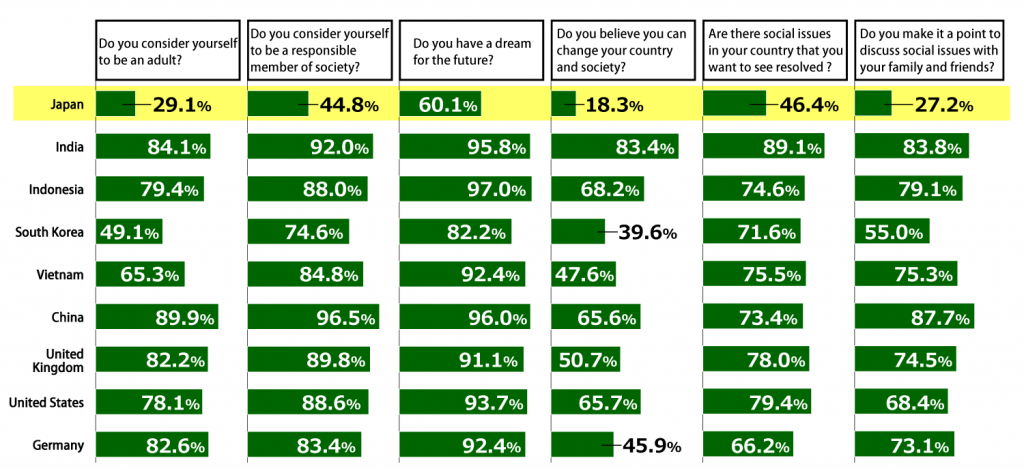
Finding: Japanese respondents were less likely than respondents in other countries to be optimistic about their country’s future. (n=1,000 per country – China, Germany, India, Indonesia, Japan, South Korea, the United Kingdom, the United States, and Vietnam)
“How do you view your country’s future?”
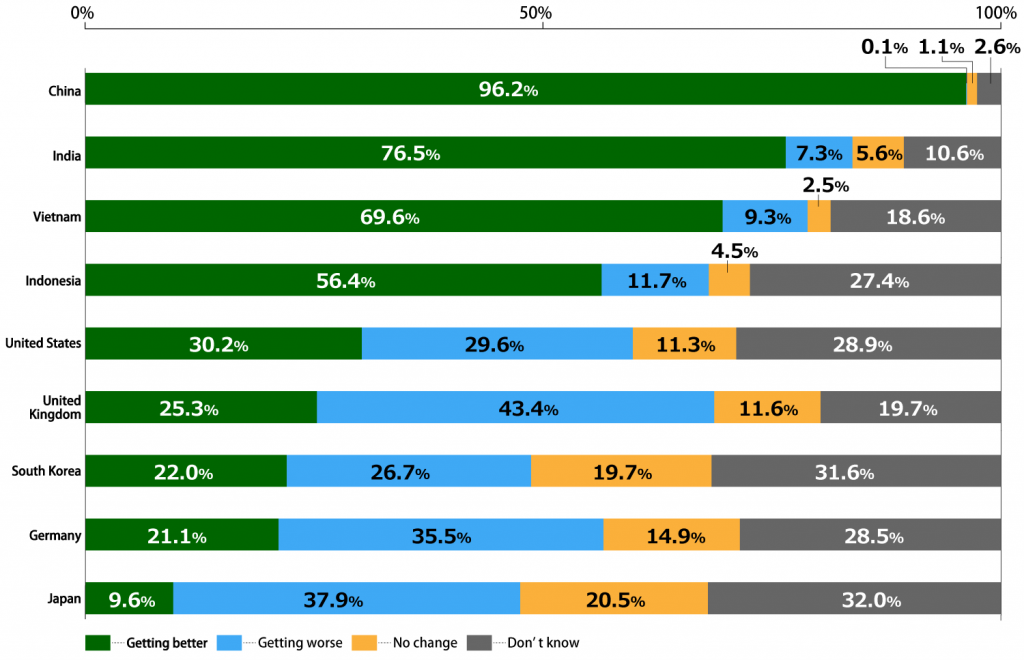
Please refer to the following article for an analysis and opinions regarding the results of this survey presented at The Nippon Foundation Social Innovation Forum 2019:
Contact
Public Relations Team
The Nippon Foundation
- Email: cc@ps.nippon-foundation.or.jp



